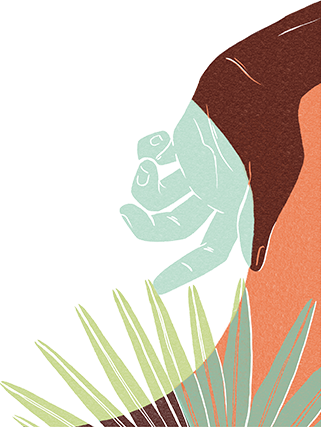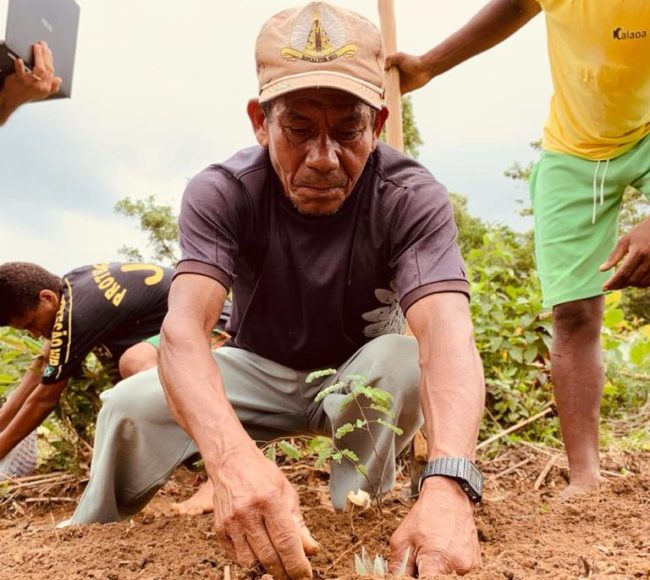 19.11.2020
19.11.2020
Agroecology – Recovering ancestral knowledges to face current challenges
By Eduardo Alfredo Moraes Guimarães
In the final months of 2019, the staff at the Integrated Institute for Human and Community Development (ITC) accepted the challenge posed by the CASA Socio-environmental Fund in the call for projects “Environmental Justice and the Reality of People Living with Disabilities.” The experience of the group of therapists, working through networks, in providing care to vulnerable families and people living with disabilities, as well as the strong partnership between the ITC and the Cosme e Damião Agroforestry collective and with the Moinho Network, in the areas of agroecology and fair and solidarity trade, are the driving forces of a project whose objective is to promote environmental justice in the small agrarian reform settlement of Florestas do Sul, in southern Bahia state.

Agroforestry workshop in the Agrarian Reform Settlement Florestas do Sul. Photo: Maria Eduarda Andrade Guimarães
There is no greater challenge for peasants than to produce healthy food respecting the environment! This challenge is even more relevant when we are dealing with people living with disabilities. There is no greater challenge for families than the presence of someone living with disability at home, in the city or rural area. In rural areas, this challenge is multiplied because of the great vulnerability of families, exposed to distorted capitalist values of colonial-style export agriculture, and the almost total absence of public authorities.
The partnership between ITC and the Cosme e Damião Agroforestry collective, in the project development and execution, has been a strategic factor because it puts forward the agroforestry – emerging from the Indigenous and African ancestry– as the key to tackle this great challenge. The small agroforestry created in the last 12 months in the settlement collective area is changing the life perspective of the settled families by including in the daily production process the knowledges or rural peoples, solidarity economy, and the negation of the values associated to colonial-style export agriculture and, above all, by including agroecology. Agroforestry is sustainability, it is regenerative agriculture, it is life!

The success of the agroforestry system! The growth speed of the trees. The farmer is next to a moringa tree.
This small agroforestry is teaching us great lessons. Already in the first few months of the pandemic, it produced an abundance of legumes and vegetables, especially pumpkins – plants that slowly cede space to other plants. Today, families are rushing to conclude the flour mill because the cassava is ready for harvesting, with production surpassing all expectations. In turn, trees such as cacao, jackfruit, cedar, Brazilian mahogany, Brazilian rosewood, kola, nutmeg, assai palm, etc., all want more sunlight.
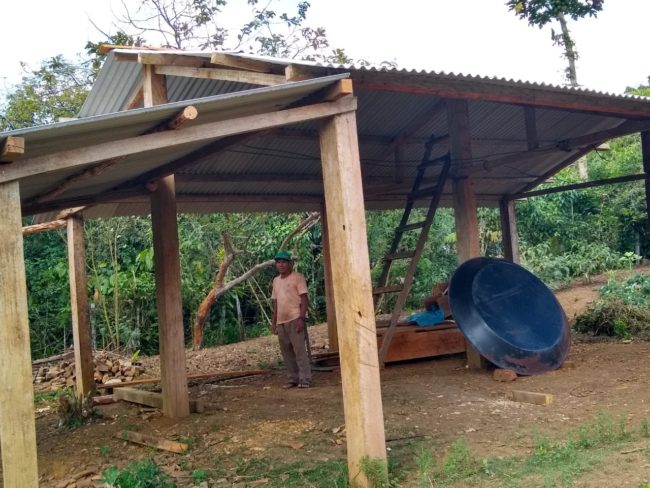
The flour house under construction will increase food security in the community. Photo: Lucas Santana de Almeida
It is in this context that the flour mill is seen as an addition to the agroforestry, a space almost exclusively dedicated to the cassava, a generous plant and the staple food of all the families in the settlement. The cassava has an essential quality taught by agroforestry: while it is growing it also looks after surrounding plants. This kind of care has mobilized the whole settlement, with families and ITC’s therapists taking care of the old people and people living with disabilities, and the Cosme e Damião Agroforestry team and families looking after plants and animals flourishing in the agroforestry hubbub!
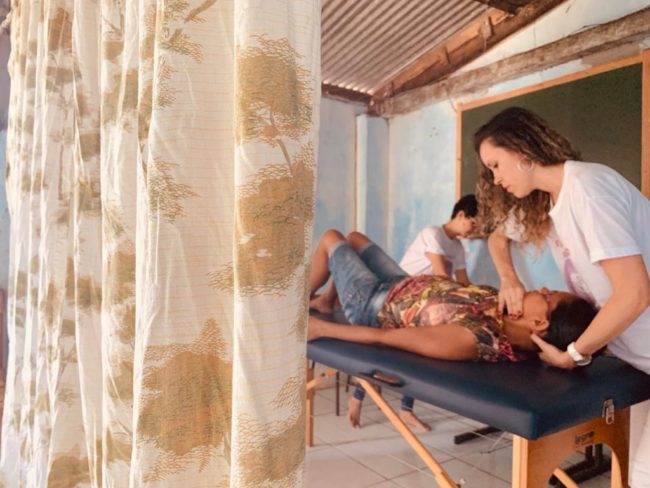
Care for people with disabilities is one of the topics addressed by ITC in this project.
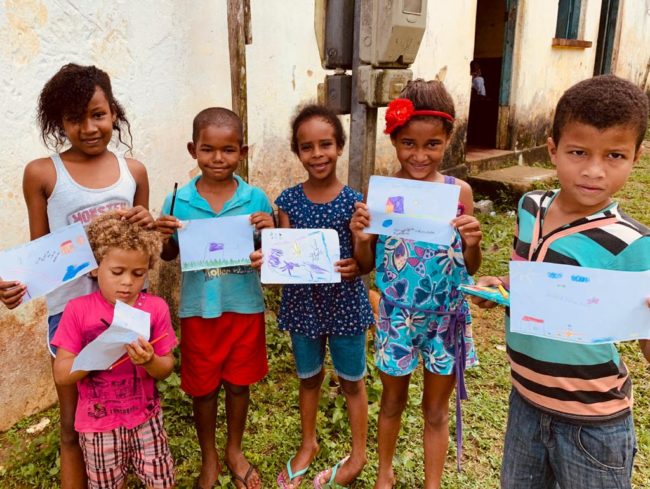
Agroforestry for children.
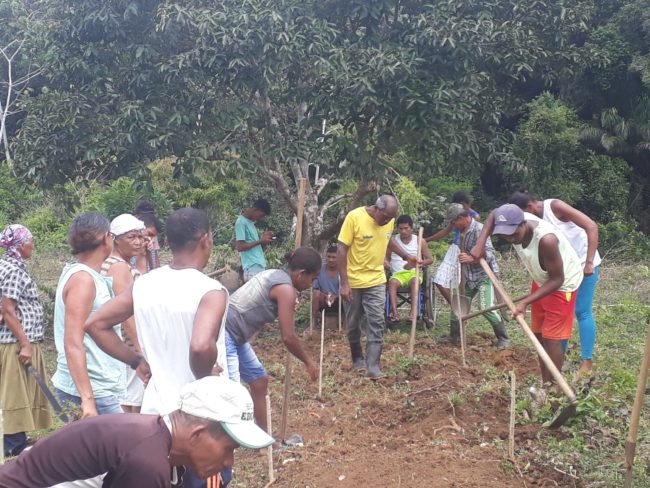
Registration of the beginning of the project.
